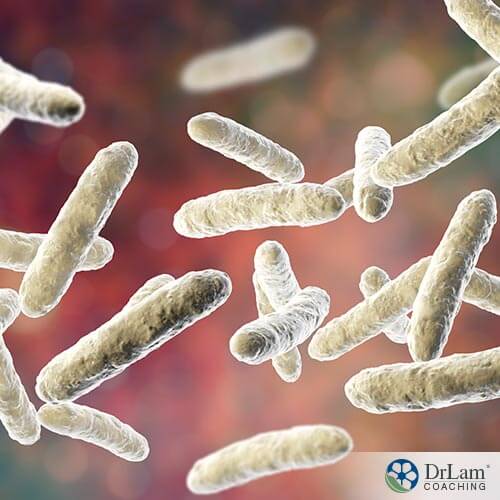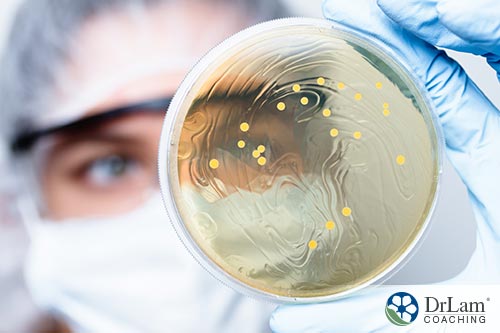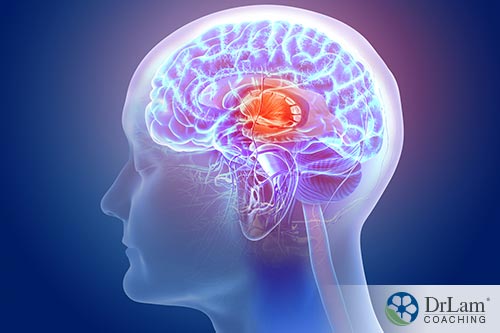Mental health conditions can take a huge toll on your life. Also, the current management options for mental health conditions may not provide lasting solutions. So, there is a greater call to visit the role of nutrition in ameliorating neurological issues. The use of probiotics for neurological issues has gained popularity for the past few years. Probiotics have been around since the invention of yogurt or fermented vegetables. So let's explore how probiotics for neurological issues function and their influence on your body's systems.

Probiotics are live microorganisms that provide health benefits to a host. They can be bacteria, yeast, or fungi. The word "probiotic" comes from the Latin words "pro," meaning promote, and "biotic," meaning life. Probiotics are "helpful" bacteria since they maintain the health of your gut.
Probiotics help in the maintenance of a healthy composition of the microbiome in the gastrointestinal tract. The disruption in the balance of the intestinal ecosystem or microbiome leads to several neurological conditions. This is modulated by the underlying action of the gut-brain axis or gut-brain circuit. It involves interaction between the gastrointestinal system and the central nervous system, the neuroendocrine system, the neuroimmune system, the sympathetic and parasympathetic autonomic nervous systems, and the enteric nervous system. The probiotics for neurological issues act on the gut-brain axis to enhance the mental health function.
The probiotics for neurologic issues provide relief to the mind-gut issues in the following ways:
Most probiotics for neurological issues contain two types of bacteria: Lactobacillus and Bifidobacteria. They include lactobacilli such as Lactobacillus acidophilus and bifidobacteria such as Bifidobacterium longus. Some yeasts such as Saccharomyces boulardii can also be present in them. These groups contain several species and strains that have a different effect on the body.
Some lactobacilli strains found in probiotics for neurological issues include:
This is commonly found in the large intestine and widely used in food products. Particularly, the lactobacillus casei shirota strain modulates serotonin and dopamine concentrations in the gut-brain axis. Thus, it is beneficial in the improvement of mood, anxiety, and symptoms of chronic fatigue syndrome.
This helps in the production of lactic acid and is used to increase the production of cheese. It decreases neuroinflammation, serotonin metabolism, anxiety, and restored cognitive function.
It modulates the neurotransmission of GABA (gamma-aminobutyric acid), an important inhibitory neurotransmitter that results in the improvement of mental health functions.
 The Bifidobacterium genus includes about 32 associated species that are involved in many processes within the human body. Some of the strains of this genus found in probiotics for neurological issues include:
The Bifidobacterium genus includes about 32 associated species that are involved in many processes within the human body. Some of the strains of this genus found in probiotics for neurological issues include:
This is found in your gut where it helps in maintaining the normal function. It regulates the vagal tone which is responsible for its action in mental health symptoms.
This is found mainly within the large intestines of humans, within dairy products, and dietary supplements. It decreases intestinal discomfort associated with irritable bowel syndrome and neuroinflammation in mental health conditions.
This strain is known for facilitating the production of acetic acid, lactic acid, and formic acid. It has antidepressant effects due to serotonin and dopamine modulation, as well as its anti-inflammatory effects.
Probiotics containing multiple strains (including both lactobacillus and bifidobacteria) have also gained popularity to address mental health conditions.
Researchers have demonstrated the use of probiotics for neurological issues such as attention deficit hyperactivity disorder (ADHD), stress, mood disorders, and neurodegenerative conditions.
The supplementation with probiotics for neurological issues early in life may reduce the risk of ADHD later in childhood. To begin with, researchers selected seventy-five infants to receive Lactobacillus rhamnosus GG or placebo during the first 6 months of life and followed them for 13 years. Gut microbiota was assessed at the age of 3 weeks, 3, 6, 12, 18, 24 months, and 13 years. At the age of 13 years, ADHD was diagnosed in 6/35 (17.1%) children in the placebo and none in the probiotic group.
Researchers have shown positive results in anxiety both for single strain and multiple strains of bacteria. For single strains, researchers observed a decrease in cortisol stress response and anxiety. The volunteers between 18-40 years of age were administered 1 × 109 CFU of a single strain of Bacterium longum 1714 for 4 weeks. Similarly, the use of multiple strains also reduced the anxiety scores in patients suffering from anxiety.
Researchers have shown the effectiveness of a single strain of Lactobacillus rhamonsus in women suffering from postpartum depression and anxiety. Similarly, for multiple strains, researchers found that the probiotic administration of 6 × 109 CFU of Lactobacillus acidophilus, Lactobacillus casei, and Bifidobacterium bifidus in patients with a major depressive disorder for 8 weeks had useful effects on indicators of depression.
Researchers concluded that the consumption of multistrain probiotics for neurological issues positively affects cognitive function in Alzheimer’s Disease patients. In a study, about 30 patients of Alzheimer’s Disease were administered multistrain probiotic consisting of Lactobacillus and Bifidobacterium and 30 were given a placebo. Improvement in the Mini-Mental Status Examination (MMSE) score was observed in the patients after 12 weeks.
 Research has indicated positive results in chronic fatigue syndrome (CFS) after the consumption of probiotics for neurological issues. The administration of Lactobacillus casei strain in CFS patients for 8 weeks decreased anxiety scores. Likewise, this probiotic changed the fecal composition following 8 weeks of treatment. Also, the management with Bifidobacterium infantis 35624 in CFS patients, at the same time lowered the inflammatory biomarkers.
Research has indicated positive results in chronic fatigue syndrome (CFS) after the consumption of probiotics for neurological issues. The administration of Lactobacillus casei strain in CFS patients for 8 weeks decreased anxiety scores. Likewise, this probiotic changed the fecal composition following 8 weeks of treatment. Also, the management with Bifidobacterium infantis 35624 in CFS patients, at the same time lowered the inflammatory biomarkers.
The probiotics for neurological issues have proved to be effective in other neurological issues such as traumatic brain injury, autism, mania, schizophrenia, and neurological changes due to advanced liver conditions.
Generally speaking, probiotics for neurological issues are safe for most people. However, people with immune system problems or other serious health conditions shouldn't take them.
Some mild side effects include an upset stomach, diarrhea, gas, and bloating for the first few days once you start taking them. There is also a risk for an allergic reaction, depending upon your sensitivity.
Always consult your medical professional before you start the use of probiotics for neurological issues.
The probiotics for neurological issues provide benefits to the symptoms of mental health conditions. They act by modulating the NeuroEndoMetabolic (NEM) Stress Response. The NEM system is your body’s method of dealing with stress. There are six interdependent circuits of organs and systems within the NEM stress response. The Neuroaffect Circuit is the main circuit that is suppressed by the action of the probiotics for neurological issues. This circuit consists of the brain, autonomic nervous system, and the microbiome in the gut or the gut-brain axis. The autonomic nervous system consists of multiple branches of the sympathetic nervous system (SNS), the adrenomedullary hormonal system (AHS), and the parasympathetic nervous system (PNS).
When stress is acute, your body responds by rapidly increasing the cortisol, the anti-stress hormone released from the adrenal glands. However, the adrenal glands get fatigued due to prolonged, chronic stress and lower cortisol production. This results in Adrenal Fatigue Syndrome (AFS). The symptoms include infections, fatigue, and neurological conditions such as anxiety, depression, problems with sleeping, lack of concentration, memory loss, mild depression. Fatigue, brain fog, and difficulty sleeping can make your life miserable. Nevertheless, the probiotics for neurological issues provide relief to all the neurological issues which occur due to fatigue.
In adrenal fatigue, there's no hormone to counteract epinephrine. The adrenal gland releases epinephrine acting under the action of the sympathetic nervous system or adrenomedullary hormonal system. This leads to the surge in the levels of epinephrine in your body. Epinephrine acting as an excitatory neurotransmitter dominates over the activity of other neurotransmitters such as GABA, 5HTP, serotonin, and dopamine.
 The progressive imbalance of the hormones and neurotransmitters in adrenal fatigue damages your brain. As a result, mental health conditions such as anxiety and depression develop. In AFS, anxiety is usually the outcome of dysfunctional thinking that leads an individual to believe that a person will never get relief. The person does not fully understand and precipitates the condition. Also, the feelings of impending doom give rise to significant symptoms later. The dysfunctional levels of norepinephrine and epinephrine add to this anxiety.
The progressive imbalance of the hormones and neurotransmitters in adrenal fatigue damages your brain. As a result, mental health conditions such as anxiety and depression develop. In AFS, anxiety is usually the outcome of dysfunctional thinking that leads an individual to believe that a person will never get relief. The person does not fully understand and precipitates the condition. Also, the feelings of impending doom give rise to significant symptoms later. The dysfunctional levels of norepinephrine and epinephrine add to this anxiety.
Depression is one outcome of adrenal fatigue due to the amount of cortisol and the timing of its release. Besides, there is also an imbalance of serotonin and dopamine. This leads to various symptoms of depression including sleep deprivation.
Further, the change in sleep patterns then becomes another stressor on the body and begins the stress response all over again. Your brain receives information regarding the high levels of epinephrine. This impacts your biological clock, its function, and output. Likewise, the biological clock, in turn also regulates the neurotransmitters. The disruption in the biological clock causes an imbalance of the neurotransmitters as well. Your sleep pattern is disturbed due to difficulty falling asleep or staying asleep.
Besides, chronic stress is one of the primary causes of neurodegeneration or the loss of neurons. You suffer from loss of memory and lack of concentration. This condition occurs in conjunction with the inflammatory changes in the brain.RD
The probiotics for neurological issues regulate the neurotransmitters, hormones, and the operation of the gut-brain axis. They also generate metabolic end products such as short-chain fatty acids which can cross the blood-brain barrier and have a protective action on the brain.
In the same way, chronic stress also causes a change in your gut microbiome. Gut dysbiosis involves the imbalance in the normal diversity and stability in the gut. The change can lead to leaky gut or increase in permeability of the gut. The junctions between the epithelial cells lining the small intestine become loose. This permits bacteria, other pathogens, and toxins to access the bloodstream and the rest of the body. The toxic agents trigger the immune process and the outcome is a significant amount of inflammation. Inflammation originating in the gut causes several mental health issues.
Probiotics for neurological issues restore the intestinal ecosystem by helping balance the bacteria and impacting the mucosal immune mechanism. They normalize the process of digestion and absorption. This restores your energy levels and boosts the health of both the gut and brain.
We recommend the use of one of two probiotic supplements, ProB or Adrebiotics.
Pro-B, which contains three bacterial strains, i.e., Lactobacillus acidophilus, Bifidobacterium lactis, and Bifibacterium longum, helps maintain the balance of good gut bacteria that, in turn, promotes the digestion and absorption process in your gut. This blend also helps fight candida while promoting healthy skin while boosting your immune health.
Adrebiotics, on the other hand, contains a wide range of beneficial bacteria that promote digestive and immune health. These include Lactobacillus acidophilus, Bifidobacterium lactis, Lactobacillus plantarum, Lactobacillus casei, Lactobacillus rhamnosus, Lactobacillus paracasei, Bifidobacterium breve, and Streptococcus thermophilus.
If you suffer from fatigue and neurological issues you can improve your health by:
No matter what plan of action you decide to take, please seek advice from your healthcare practitioner who will assess your particular situation and advise whether probiotics are right for you.
If you would like to get additional information about the benefits of probiotics for neurological issues, the team at Dr. Lam Coaching can help. We offer a free** no-obligation phone consultation at +1 (626) 571-1234 where we will privately discuss your symptoms and various appropriate choices. Moreover, you can also send us a question through our Ask The Doctor system by clicking here.
Probiotics for neurological issues help in the maintenance of balanced levels of the microbiome in the gastrointestinal tract and strengthen the intestinal barrier. They act on the gut-brain axis to enhance the mental health function. They also regulate the neurotransmitters and hormones in your brain and digestive system.
